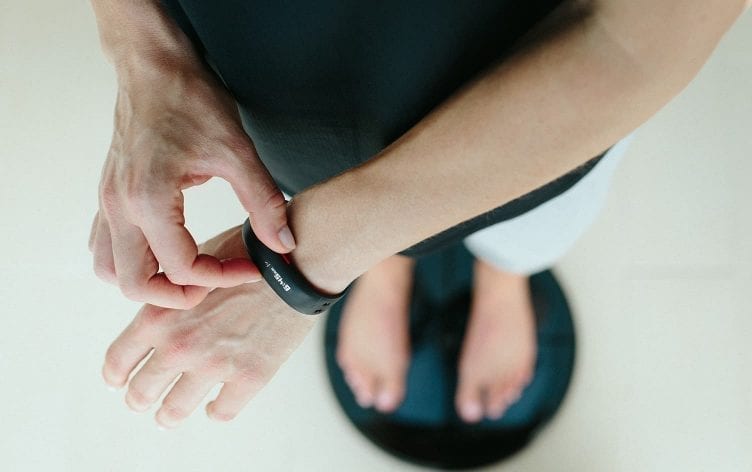
Weight loss can be tricky. We all know we need to consume fewer calories than we burn to lose weight, but sometimes—even when you’re doing all the right things—that weight loss can come to a screeching halt.
This can happen for a number of reasons, but, more often than not, it’s comes down to something that requires a serious lifestyle change to fix. Here are 5 of the most common, yet not-so-obvious reasons you’re not losing weight, plus some tried-and-true.
1. You’re Stressed “Stress is the silent killer.” This is especially true when it comes to weight loss. Stress releases cortisol (often simply referred to as “the stress hormone”)—and in today’s society, excessively high cortisol levels are incredibly common. Cortisol degrades muscle tissue and encourages the storage of body fat, and is has been linked to other health issues that are a lot more serious than a few extra pounds around your waist.
If you want to get lean, then you need to make a serious effort to lower your stress levels. (Easier said than done, I know!) Try limiting the length of your workouts to 45 minutes, surrounding yourself with positive people, meditating, and getting plenty of sleep.
2. You’re Not Getting Enough Sleep Not only does enough sleep reduce levels of cortisol, but it also produces growth hormone (GH). GH pretty much has the opposite effect of cortisol on the body—it encourages fat loss, supports your immune system, and helps to keep your organs functioning properly.
Sleep also balances the hormones that control hunger. If you’ve ever gone to bed hungry and woken up not hungry, this is why. On the flip side, if you miss a night’s sleep you are likely to eat more calories the next day. While it varies from person to person, most of us should aim to get 7 to 9 hours of sleep each night.
3. You’re Not Drinking Enough Water You’re probably sick and tired of hearing about how important water is to your health, but most people still don’t drink enough of it.
There’s a whole host of benefits to drinking enough water, one of which is proper kidney function. Dehydration impairs your kidneys, and when your kidneys aren’t working properly, your liver has to pick up the slack. Your liver is responsible for the metabolism of fat, which means fat cannot be metabolized as efficiently when your liver has to work twice as hard to remove toxins.
The solution is simple: when you’re thirsty, drink water. In particular, ensure that you are hydrated around workouts.
4. You Have Poor Digestion The gut is incredibly complicated, and scientists are only scratching the surface when it comes to understanding how the natural micro-biome of gut bacteria works. But one thing is clear: whether you want to improve your ability to lose fat, boost your immune system, clear up your skin, or even just feel better on daily basis, it all starts with gut health.
Unfortunately, most people don’t usually realize their gut isn’t functioning properly until it’s too late. But there are steps you can take to help prevent any malfunctions: reduce stress, eat fewer meals or even consider periods of fasting to give your digestive system a break, minimize the consumption of legumes, grains, sugar and pastured dairy, and chew your food until it’s mush before swallowing.
5. You’re Not Eating Enough Fiber Fiber aids digestive health and helps to create a sense of fullness, which makes consuming fewer calories easier.
It’s estimated that only 5% of Americans get enough fiber. Why are people missing out? Most of us assume we’re getting enough from grain-based products like bread and cereal, but the reality is these highly-processed foods have been stripped of their nutrients and fiber. Instead, eat more fruit and vegetables, and opt for whole grains, like brown rice and steal-cut oatmeal.
Could one of these issues be to blame for your weight loss plateau? Share your thoughts in the comments below!
 MORE TO HELP YOUR #RESOLUTIONRESET
MORE TO HELP YOUR #RESOLUTIONRESET
What Causes a Weight Loss Plateau
5 Ways We Sabotage Our Health Goals
8 Things to Do When You’ve Lost Motivation

